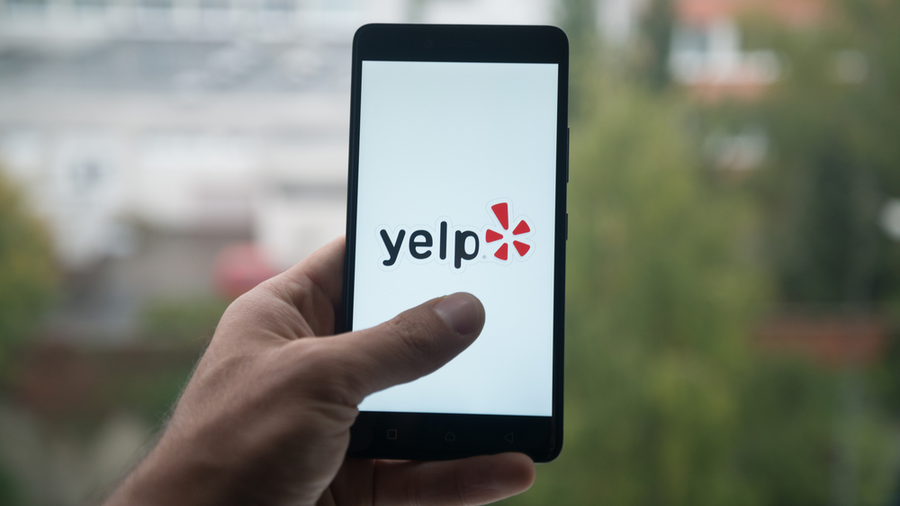Pro-life groups and pregnancy center networks are condemning Yelp’s decision to place warnings on pregnancy centers listed on its popular platform, which relies on the public to rate and review local businesses.
The company announced Tuesday that it is placing “consumer notices” on the review pages of pregnancy centers. The notice reads: “This is a Crisis Pregnancy Center. Crisis Pregnancy Centers typically provide limited medical services and may not have licensed medical professionals onsite.”
In response, pregnancy center networks challenged Yelp's move.
“Every doctor’s office in the country provides limited medical services,” Roland Warren, the president and CEO of Care Net, which supports a network of 1,100 pregnancy centers, told CNA. “If you go to a heart surgeon and ask for foot surgery, they won’t do it.”
Yelp’s warnings appear to discriminate against pro-life centers, Warren said.
“Planned Parenthood provides limited medical services, too,” he stressed. “They provide abortions, but if you have complications from an abortion, they send you to an emergency room.”
“So why is Yelp just adding this notification for pregnancy centers?” he asked.
Approximately 3,000 pregnancy centers provide hundreds of thousands of women with life-affirming care in the United States at little to no cost. According to the Charlotte Lozier Institute (CLI), the research arm of SBA Pro-Life America, these centers offered services and material assistance amounting to more than $266 million in 2019 alone.
In 2019, CLI found that many of these centers are staffed with medical professionals. It counted 10,215 licensed medical professionals involved as pregnancy center workers. That included 25% of all paid staff and 12% of all volunteers.
Warren at Care Net called the claim that centers “may not have licensed medical professionals onsite” a “red herring.”
“At centers where we provide medical services, we have personnel on site who are licensed to provide those specific medical services,” Warren said. “At centers where we do not provide medical services, we obviously don’t have to have licensed medical professionals on-site. It’s a non-issue.”
Noorie Malik, the vice president of user operations at Yelp, detailed the company’s move to place new notifications on Yelp business pages for “Crisis Pregnancy Centers and Faith-based Crisis Pregnancy Centers” following the Supreme Court’s decision to overturn Roe v. Wade in June.
“It’s well-reported that crisis pregnancy centers do not offer abortion services, and it’s been shown that many provide misleading information in an attempt to steer people seeking abortion care to other options,” Malik concluded. “With this new consumer notice we’re aiming to further protect consumers from the potential of being misled or confused.”
Warren called Yelp’s justification for its new notification “just the same old tired trope about pregnancy centers being misleading.”
That claim, he added, “has been disproven over and over again by anyone who is interested in inspecting what pregnancy centers actually do, what they actually tell their clients, and the reputable sources that they use to back up every single one of those claims.”
Andrea Trudden, the vice president of communications and marketing at Heartbeat International, a network supporting thousands of pregnancy centers, said that pregnant women — not Yelp — should decide where to seek help.
“Women who utilize their services overwhelmingly give pregnancy centers satisfactory ratings for the care they receive,” Trudden told CNA. “Women are smart and capable beings — they do not need Yelp to tell them where to go when pregnant.”
Trudden called Yelp’s decision to label these centers part of an “ongoing saga.” Her group identifies itself as the first network of pro-life pregnancy resource centers in the U.S. and the most expansive network in the world, with over 3,000 affiliate locations.
“Ironically, in their quest to label pregnancy centers so that women only see abortion providers when seeking pregnancy help, they actually remove any semblance of ‘choice,’” Trudden told CNA. “Logic tells me that the organization operating the pregnancy center has a better idea of the services they offer rather than a Yelp employee with an agenda.”
In Yelp’s announcement Tuesday, Malik added that, since 2018, Yelp moderators have “manually evaluated tens of thousands of business listings and recategorized businesses that do not offer actual abortion services as either Crisis Pregnancy Centers or Faith-based Crisis Pregnancy Centers.” She promised that the company would continue its investigation, “with plans to evaluate a total of 55,000+ business pages across the U.S., Canada and Puerto Rico.”
Trudden called on Yelp to disclose where they received this list of pregnancy help organizations they are now labeling for the sake of full transparency. She added that, in the past, Yelp has publicly advocated for abortion as a company.
Earlier this year, it joined a long list of companies pledging to provide financial assistance to employees traveling for abortions.
Yelp’s decision also comes at a time when pregnancy centers are facing “an unprecedented rash of attacks,” SBA Pro-Life America President Marjorie Dannenfelser said in a statement.
“Shame on Big Tech companies like Yelp for colluding with the abortion lobby in their war on compassionate pregnancy help,” she said. “Discriminatory labels are not meant to inform, but to scare women away from receiving the support and resources they need.”
Dannenfelser stressed the benefits that pregnancy centers offer.
“America’s pregnancy centers exist to serve women and families, taking financial pressures and other types of coercion out of the equation,” she said. “If Big Tech’s labels were truthful, they’d highlight all the real services pregnancy centers provide that Planned Parenthood and the abortion industry don’t, such as diapers, formula, clothing, strollers, parenting and childbirth classes, education and career help, and much more — typically free of charge.”
Yelp did not respond to a request for comment by time of publication.

